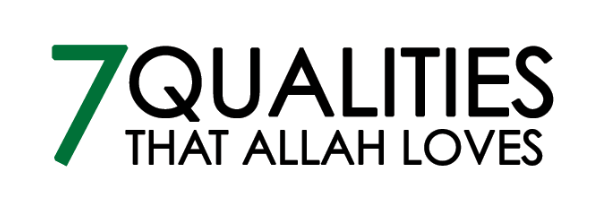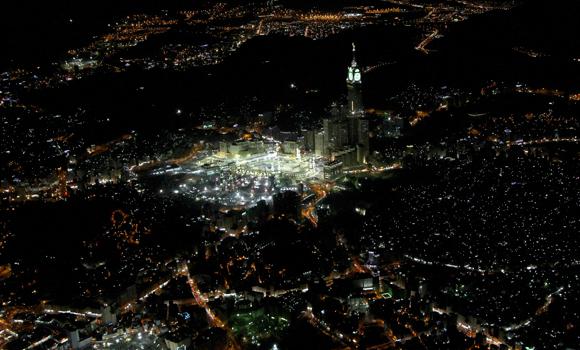6 Steps to Get You Closer to Allah (SWT) – Infographic
Posted in Daily Islam
Posted in Daily Islam,Hadith
A man asked the Prophet (sallallähu alaihi wasallam), “What Islamic traits are the best?”
He replied, “Feed the people, and greet those whom you know and those whom you do not know.”
[Bukhari Book:74 No:253]
Posted in Daily Islam,Hadith
Shaykh Muhammad ibn Saalih al-‘Uthaymeen (may Allaah have mercy on him) was asked: Is there any du’aa’ narrated from the Prophet (peace and blessings of Allaah be upon him) which is to be said at the time of breaking the fast? When should it be said? Should the fasting person repeat the adhaan after the muezzin or continue breaking his fast?
He replied:
The time of breaking the fast is a time when du’aa’s are answered, because it is the end of an act of worship, and because a person is usually at his weakest when breaking his fast. The greater a person’s sense of helplessness and weakness is, the closer he is to humility before Allaah. The du’aa’ that is narrated is: “Allaahumma laka sumtu wa ‘ala rizqika aftartu (O Allaah, for You have I fasted and by Your provision I have broken my fast).” And the Prophet (peace and blessings of Allaah be upon him) said: “Dhahaba al-zama’ wa abtalat al-‘urooq wa thabat al-ajr in sha Allaah (Thirst has gone, the veins are moist, and the reward is assured, if Allaah wills).” Although there may be some weakness in these two hadeeths, some scholars classed them as hasan. Whatever the case, if you says these du’aa’s or some others when breaking the fast, this is a time when du’aa’s are answered. End quote.
Majmoo’ Fataawa al-Shaykh Ibn ‘Uthaymeen (19/question no. 341)
With regard to sahoor, there is no specific du’aa’ to be said at this time. What is prescribed is to say Bismillah at the beginning and to praise Him when one stops eating, as should be done at every meal.
But the one who delays his sahoor until the last third of the night also catches up with the time of the divine descent, and this is a time when du’aa’s are answered.
It was narrated from Abu Hurayrah (may Allaah be pleased with him) that the Messenger of Allaah (peace and blessings of Allaah be upon him) said: “Our Lord, may He be blessed and exalted, comes down to the lowest heaven every night when the last third of the night is left, and He says: ‘Who will call upon Me, that I may answer him? Who will ask of Me, that I may give him? Who will ask Me for forgiveness, that I may forgive him?’” Narrated by al-Bukhaari (1094) and Muslim (758). So he should say du’aa’ at this time because it is a time when du’aa’ is answered, not because of sahoor.
With regard to the intention, the site thereof is the heart, and it is not prescribed to utter it out loud. Shaykh al-Islam Ibn Taymiyah said: “Whoever thinks in his heart that he will fast tomorrow has formed the intention.”
Du’aa’ of the fasting person when breaking his fast
‘Umar said: The Messenger of Allaah (peace and blessings of Allaah be upon him) used to say when breaking his fast: “Dhahaba al-zama’ wa abtalat al-‘urooq wa thabata al-ajr in sha Allaah (Thirst is gone, the veins are moistened and the reward is certain if Allaah wills).”
Narrated by Abu Dawood, 2357; al-Daaraqutni, 25. Ibn Hajar said in al-Talkhees al-Habeer (2/202): al-Daaraqutni said, its isnaad is saheeh.
The du’aa’ “Allaahumma laka sumtu wa ‘ala rizqika aftartu (O Allaah, for You have I fasted and by Your provision I have broken my fast)” was narrated by Abu Dawood, 2358. It is a mursal hadeeth so it is da’eef (weak) . Al-Albaani classed it as da’eef in ben dawwad (510)
Saying du’aa’ after doing acts of worship is deeply rooted in sharee’ah, such as making du’aa’ after praying and after completing the rituals of Hajj. Fasting is not excluded from that in sha Allaah. Allaah mentioned the verse of du’aa’ and encouraged du’aa’ among the verses that speak of fasting, as Allaah says (interpretation of the meaning):
“And when My slaves ask you (O Muhammad) concerning Me, then (answer them), I am indeed near (to them by My Knowledge). I respond to the invocations of the supplicant when he calls on Me (without any mediator or intercessor). So let them obey Me and believe in Me, so that they may be led aright” [al-Baqarah 2:186]
The Messenger of Allah (Sallahu Alayhi WaSallaam) said; Three supplications will not be rejected (by Allah (SWT)), the supplication of the parent for his child, the supplication of the one who is fasting, and the supplication of the traveler. [al-Bayhaqi, at-Tirmidhi – Sahih]
The prophet (Sallahu Alayhi WaSallaam) declared, ‘Three men whose dua is never rejected (by Allah) are: when a fasting person breaks fast (in another narration, the fasting person until he breaks his fast), the just ruler and the one who is oppressed.'[Ahmad, at-Tirmidhi – Hasan]
When breaking the fast- Iftar
ذَهَبَ الظَّمَأُ وَ ابْتَلَّتِ الْعُرُوقُ، وَ ثَبَتَ الأجْرُ
إنْ شَاءَ اللَّهُ
dhahabadh-dhama’u wab-tallatil ‘urūūqi,wa thabatal arju inshaAllah
The thrist is gone, the veins are moistened and the reward is confirmed, if Allah [Ta’ala] Wills [abu Dawud 2357]
When someone offers you food when you are fasting and you decline
When you are invited to eat, then reply to the invitation. if you are fasting, then invoke Allah’s blessings (on your host), and if you are not fasting then eat [Muslim; 2:1054]
When you are fasting, and someone is rude to you
اِنَّيْ صَائِمٌ ، اِنِّيْ صَائمٌ
Inni sa’iimu, inni sa’iimu
I am fasting, I am fasting
[Sahih al-Bukhari, Fath al-Bari of Al-Asqalani; 4:1-3, Muslim; 2:806]
Upon Sighting of the new Moon
اللَّهُ
اَكْبَرُ ، اَللَّهُمَّ اَهِلَّهُ عَلَيْنَا بِالآَمْنِ وَلاِيمَانِ ، وَالسَّلَامَةِ وَالاِسْلَامِ ، وَالتَّوْفِيقِ لِمَا تُحِبُّ رَبَّنَا وَتَرْضَى ، رَبُّنَا وَرَبُّكَ اللَّهُ
Allahu Akbar. Allahumma ahillahu ‘alayna bil-amni wal-imaani, was-salaamati, wal-Islami, wat-tawfeeqi lima tuhibbu Rabbana wa tardha. Rabbuna wa RabbukAllahu
Allah is the Greatest. O Allah bring us the new moon with security and faith, with peace and in Islam, and in harmony with what our Lord Loves and what pleases Him. Our Lord and your Lord is Allah [Although the narration of Tirmidhi is Sahih but with different text. The wordings in tirmidhi are” اللهم أهلله علينا باليمن والإيمان والسلامة والإسلام ربي وربك الله” Tirmidhi 3451, Sahih by Albani.]
Upon seeing the first dates of the season
اللَّهُمَّ بَارِكْ لَنَا فِي ثَمَرِنَا ، وَ بَارِكْ لَنَا فِي مَدِينَتِنَا وَ بَارِكْ لَنَا فِي صَاعِنَا ، وَبَارِكْ لَنَا فِي مُدِّنَا
Allahumma barik lana fi thamarina, wa barik lana fi madinatina, wa barik lana fi saa’ina, wa barik lana fi muddina
O Allah! Bless us in our dates, and bless us in our town, bless us in our saa’ and in our Mudd’
(saa’ and Mudd’ are dry measures used for agricultural produce by the Arabs in the Prophet’s time)
[at-Tirmidhi 5:504, ad-Darimi 1:336]
Upon breaking the fast in someone’s home
أفْطَرَ عِنْدَكُمُ الصَّائِمُونَ، وَ أَكَلَ طَعَامَكُمُ
الأبْرَارُ، وَ صَلَّتْ عَلَيْكُم ُ الْمَلائِكَةُ
Aftara ‘indakumus saa’imuna, wa akala
ta’aamakumul-abraaru, wasallat ‘alaikumul mala’ikat
May those who are fasting break their fast in
your home, and may the dutiful and pious eat
your food and may the angels send prayers upon you.
[abu Dawud 3:367, ibn Majah 1:556, an Nasa’i]
Posted in Daily Islam,Quran
1. TAWBAH (Repentance)
“For Allah loves those who turn to Him constantly (in repentance)” [Surah Al Baqarah 2:222]
2. TAHARAH (Purification)
“Allah loves those who keep themselves pure and clean.” [Surah Al Baqarah 2:222]
3. TAQWA (Piety)
“For Allah loves the righteous (the pious).” [Surah Al Tawbah 9:4]
4. IHSAN (Goodness & Perfection)
“For Allah loves those who do good” [Surah Ali ‘Imran 3:134]
5. TAWAKKUL (Trust in Allah)
“For Allah loves those who put their trust (in Him).” [Surah Ali ‘Imran 3:159]
6. ADL (Justice)
“For Allah loves those who judge in equity.” [Surah Al Ma’idah 5:42] “For Allah loves those who are fair (and just).” [Surah Al Hujurat 49:9]
7. SABR (Patience)
“And Allah Loves those who are firm and steadfast (As-Sabirin (the patient)).” [Surah Ali ‘Imran 3:146]
Posted in Daily Islam,Events
The Supreme Court has called on all Muslims in the Kingdom of Saudi Arabia to sight the crescent of the blessed month of Ramadan on Thursday evening, Shaaban 29, 1433AH, corresponding to July 19, 2012, according to Umm Al-Qura Calendar.
In an announcement made this morning, the Supreme Court also called on whoever sees the crescent of the blessed month of Ramadan by naked eyes or through binoculars to report to the nearest court and register his testimony, or report to the authority of the region’s governorate if there is no judge in the area where he sighted the crescent in order to facilitate his reaching to the nearest court.
The Supreme Court also urges all Muslims to sight the Crescent for the cooperation of all Muslims in righteousness and piety.
Posted in Daily Islam,Hadith